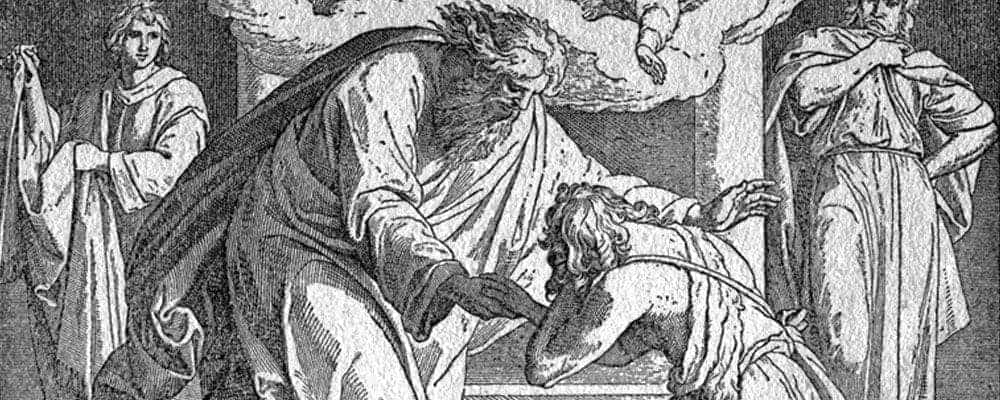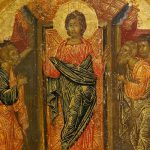
Newtown: Seeking Answers
Editor’s note: This post was written in reaction to the Dec. 4, 2012 Sandy Hook Elementary School shooting in Connecticut, USA.
It always happens. In the aftermath of every disaster affecting deaths, especially of innocent victims, the “whys” are raised and the blame is placed squarely on God. “Why did He allow such a tragedy to happen?” “What kind of God could do such thing?” “Perhaps there is no God in control of our destinies.” “Such things happen because there is no God.”
Even people of faith are tested, especially when calamity touches the lives of those close to them. If there is a God, by definition He is all-powerful as well as all good. So it doesn’t seem to make any sense for such disasters to occur. Is there an answer that can reconcile our faith in such a Being and the suffering we experience in our lives? Why does God allow so much evil in the world?
People turn for answers particularly to men of the cloth. Oftentimes all one gets is “the silent treatment”—the presence of a fellow human being next to us, the sympathy of a caring arm around one’s shoulders. Or words that avoid giving any answers to the most fundamental questions in our lives—because one lacks such answers. The love and care we display for each other is a consolation, but this is not all we can do.
The answers one hears are an honest “I don’t know” or “I don’t have all the answers”; or “let’s face reality: bad things do happen even to good people”; “this is not Paradise, but ‘the valley of tears’”; “we need to take the good and the bad this life offers us; there is no escaping it”; and “suffering and death are natural”.
On the other hand, talking about an afterlife, where there is no pain, no sorrow and no grief, does not satisfy the mother of a four-year-old dying of leukemia, or the father of a three month old baby who died of SIDS, or the parents of the 20 massacred children, and the loved ones of the other victims of the slaying. The “why” remains, even in the case of someone who firmly believes in the Resurrection and Paradise.
The truth is, when one sits by the bedside of someone who is suffering or stands beside the casket of one’s dearly departed, when one’s wound is too fresh, and they are too sensitive, any words offered add pain rather than provide comfort. Even if one attempts to provide an answer, it is too philosophical and abstract — inappropriate for a time of deep psychological turmoil in the heart of one affected too deeply, who is not ready to accept rational arguments and explanations. Any answers seem to be too distant at a time when they are mostly needed.
Where words fail or are inadequate “the silent treatment” is the best answer. But after the emotional pain and the deep sadness subside, one is in a position to reflect and meditate on a few answers. From my Christian background I draw an answer from the parable of the Prodigal Son. He lived in his father’s house, where everything was taken care of by the loving father, who stands for God. The son could have lived in the paternal house happily, but a craving for a life of pleasure, independence and adventure, carried him far away, where he dissipated his life, losing everything he had.
So, bad things began to happen, and continue to happen to us, since we are all away from our father’s home. They don’t just happen, it is in our nature to suffer and die, and there is absolutely nothing we can do to change our doomed existence. If that were the case, for sure God Himself would be an impotent bystander, and obviously no prayer to Him would have the power to reverse the course of our lives.
Are we then to blame our heavenly Father for all the ills of humanity which we have brought upon ourselves? In our earthly existence we are all in involuntary exile, and subject to the sufferings it brings. And while it is true that we were born away from our father’s home, and that there is nothing we can do to change this, we must make sure we find our way back, as the Prodigal Son did in the parable.
But why did God allow us to leave, knowing that a life away from Him would cause us untold sufferings? Because He gave us the precious freedom to love Him voluntarily — for there is no other way for love to function, but in freedom. He could have created us without our freedom and live with Him, as cats and dogs live with us, in seeming bliss—then die. To us alone He gave the privilege to respond to His love and share His life. Are we to blame Him for this?
Although we “go through fire”, we can emerge, after a temporary trial, unscathed, to finally reach our destination. He allows our suffering, so that through this means, we may seek Him and find Him and be with Him, forever thereafter. With this understanding of life we realize how unfair it would be to asperse blame and hold God responsible for the ills of this life, of which we are the cause, and for which we are solely responsible.
Going away from our father’s home was bad enough. Staying away is worse. Blaming our Father for our predicament is the worst of all. Trying to cope with our condition as best we can, “surviving,” going on with our lives as if there were no possibility of escape or change is tragic, because we seal our brief existence with the finality death brings.
Instead, we should keep the faith, that is, the trust and confidence in a loving and caring Father, who anxiously awaits our return, who will embrace us lovingly and once more establish us in the honor we once had as His beloved children and inheritors.
So, there is an answer, but the answer is for believing Christians only. For the argument, “Since God is all-good and all-powerful why does He allow evil to have the upper hand? Why doesn’t He stop it altogether?” overlooks the other side of the equation – us! We are the cause of evil, and evil continues because we remain evil.
Bad, horrible things do happen, for which, directly or indirectly, we are responsible. Directly, when we ourselves commit evil; indirectly, because even in cases of terrible accidents and sickness and natural catastrophes, according to our faith, we suffer the consequences sin has brought upon the entire creation. But let me be clear: God does not punish us for our sins. He always loves us and desires our return to Him. Yet our sins do breathe evil.
God is good (the only one who is good) and He is almighty, and He reserves the best for us — if only we seek Him with all our heart, by doing His will, by following His precepts. He became a human being to be for us the way and the truth to follow securely, to reach our destination, which is the sharing of His divine life.
As Christians, we don’t blindly accept the line, “There is evil in the world and there is nothing we can do about it.” Yes, this is an evil world, which we have brought upon ourselves. And while we cannot change it, we can change ourselves. We will then find out that God is good, and that good will ultimately triumph. We need to have faith (trust) in Him. He has reserved something better for those who love Him and who do His will freely, motivated by their love for Him.

